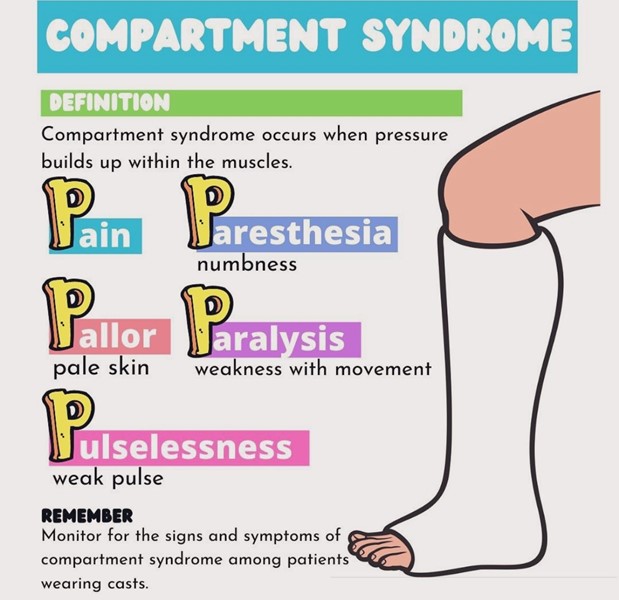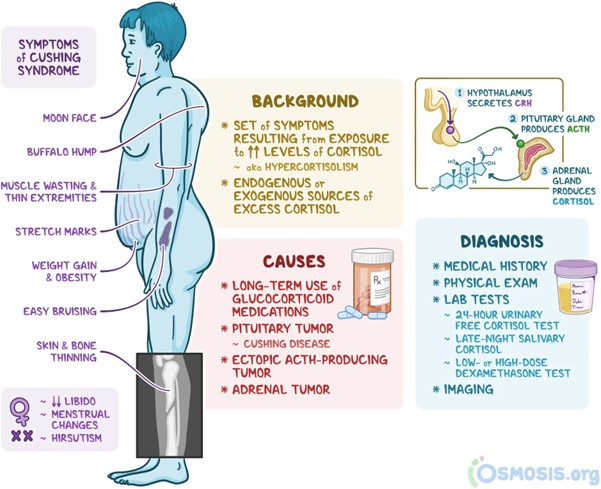Heparin 7,000 units is ordered. Heparin 5,000 units per ml is available. How many milliliters (ml) should the nurse administer?
(Do not round)
The Correct Answer is ["1.4"]
We know that 7,000 units is equivalent to 5,000 units per ml. So, we can set up the proportion:
7,000 units / 5,000 units per ml = x ml / 1 ml x = 7,000 / 5,000
x = 1.4
Therefore, the nurse should administer 1.4 milliliters (ml) of heparin.
Nursing Test Bank
Naxlex Comprehensive Predictor Exams
Related Questions
Correct Answer is D
Explanation
Compartment syndrome is a condition characterized by increased pressure within a muscle compartment, leading to impaired blood flow and potential tissue damage. It can occur when swelling or bleeding within a confined space, such as a cast, causes increased pressure on the surrounding tissues.
Tingling in the toes and decreased sensation can be indicative of nerve compression or damage due to increased pressure in the compartment. It is important to recognize these neurological changes as potential signs of compartment syndrome.
Signs and symptoms of compartment syndrome may include:
- Severe pain that is out of proportion to the injury or not relieved by pain medication.
- Swelling and tightness in the affected area.
- Numbness or tingling.
- Pale or cool skin over the affected area.
- Weakness or decreased sensation in the affected limb.
- In severe cases, paralysis or loss of pulse in the affected area.

Correct Answer is B
Explanation
Cushing's syndrome is a disorder characterized by excessive production or prolonged exposure to high levels of glucocorticoids, particularly cortisol. This can occur due to various reasons, such as the use of corticosteroid medications or overproduction of cortisol by the adrenal glands. Elevated glucocorticoid levels result in a variety of clinical manifestations associated with Cushing's syndrome, including weight gain, central obesity, muscle wasting, thinning of the skin, easy bruising, and impaired glucose metabolism.
It's important to note that Cushing's syndrome can have different underlying causes, such as adrenal tumors, pituitary tumors, or ectopic ACTH production. Regardless of the cause, the common feature in Cushing's syndrome is the excessive glucocorticoid levels, which contribute to the signs and symptoms of the condition.

Whether you are a student looking to ace your exams or a practicing nurse seeking to enhance your expertise , our nursing education contents will empower you with the confidence and competence to make a difference in the lives of patients and become a respected leader in the healthcare field.
Visit Naxlex, invest in your future and unlock endless possibilities with our unparalleled nursing education contents today
Report Wrong Answer on the Current Question
Do you disagree with the answer? If yes, what is your expected answer? Explain.
Kindly be descriptive with the issue you are facing.
